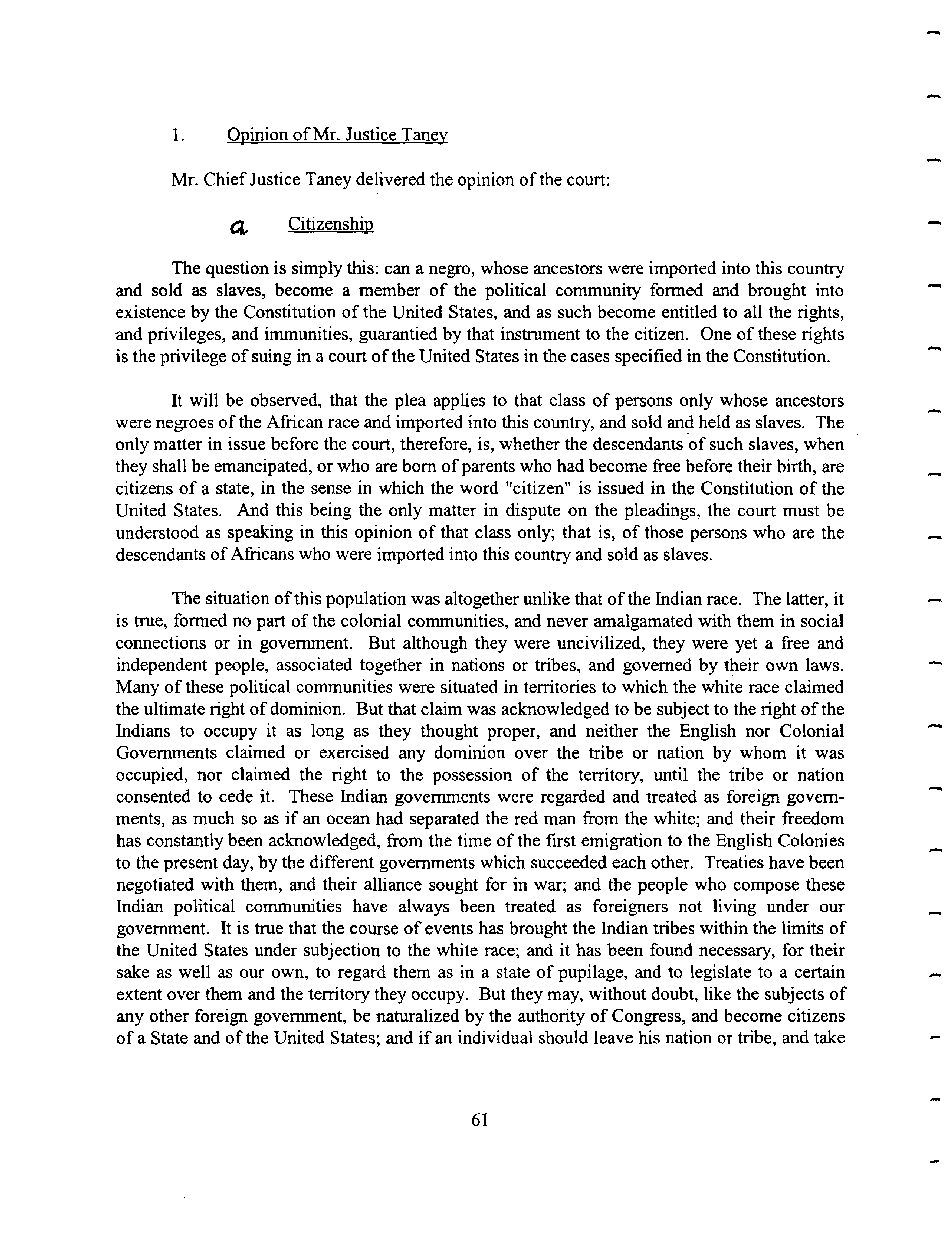|
1. Opinion of Mr. Justice Taney
Mr. Chief Justice Taney delivered the opinion of the court:
(j. Citizenship
The question is simply this: can a negro, whose ancestors were imported into this country
and sold as slaves, become a member of the political community formed and brought into
existence by the Constitution of the United States, and as such become entitled to all the rights,
and privileges, and immunities, guarantied by that instrument to the citizen. One of these rights
is the privilege of suing in a court of the United States in the cases specified in the Constitution.
It will be observed, that the plea applies to that class of persons only whose ancestors
were negroes of the African race and imported into this country, and sold and held as slaves. The
only matter in issue before the court, therefore, is, whether the descendants of such slaves, when
they shall be emancipated, or who are bom of parents who had become free before their birth, are
citizens of a state, in the sense in which the word "citizen" is issued in the Constitution of the
United States. And this being the only matter in dispute on the pleadings, the court must be
understood as speaking in this opinion of that class only; that is, of those persons who are the
descendants of Africans who were imported into this country and sold as slaves.
The situation of this population was altogether unlike that of the Indian race. The latter, it
is true, formed no part of the colonial communities, and never amalgamated with them in social
connections or in government. But although they were uncivilized, they were yet a free and
independent people, associated together in nations or tribes, and governed by their own laws.
Many of these political communities were situated in territories to which the white race claimed
the ultimate right of dominion. But that claim was acknowledged to be subject to the right of the
Indians to occupy it as long as they thought proper, and neither the English nor Colonial
Governments claimed or exercised any dominion over the tribe or nation by whom it was
occupied, nor claimed the right to the possession of the territory, until the tribe or nation
consented to cede it. These Indian governments were regarded and treated as foreign govern-
ments, as much so as if an ocean had separated the red man from the white; and their freedom
has constantly been acknowledged, from the time of the first emigration to the English Colonies
to the present day, by the different governments which succeeded each other. Treaties have been
negotiated with them, and their alliance sought for in war; and the people who compose these
Indian political communities have always been treated as foreigners not living under our
government. It is true that the course of events has brought the Indian tribes within the limits of
the United States under subjection to the white race; and it has been found necessary, for their
sake as well as our own, to regard them as in a state of pupilage, and to legislate to a certain
extent over them and the territory they occupy. But they may, without doubt, like the subjects of
any other foreign government, be naturalized by the authority of Congress, and become citizens
of a State and of the United States; and if an individual should leave his nation or tribe, and take
61
�
|

